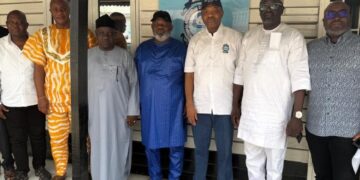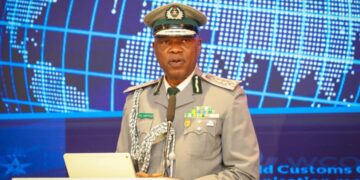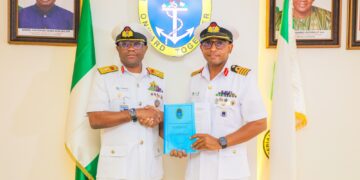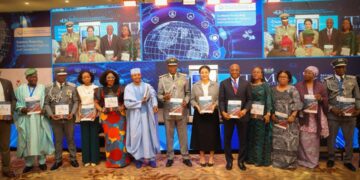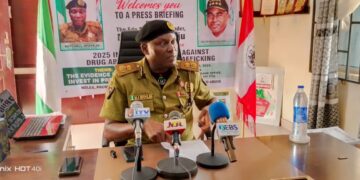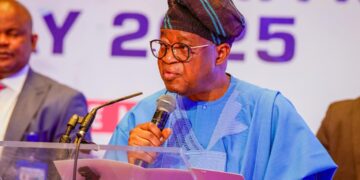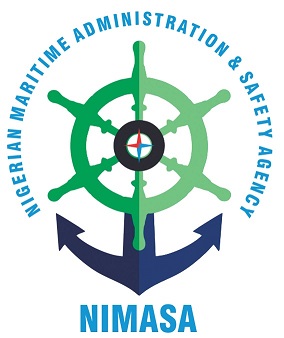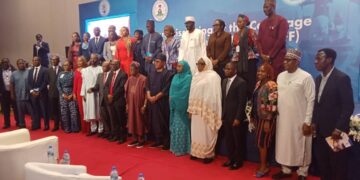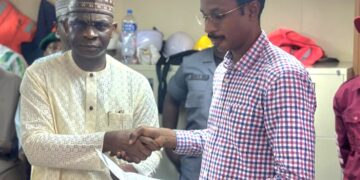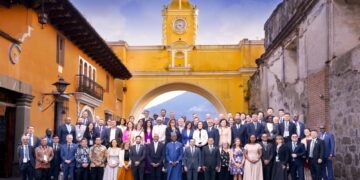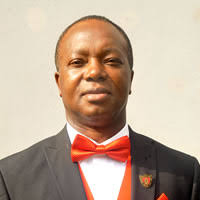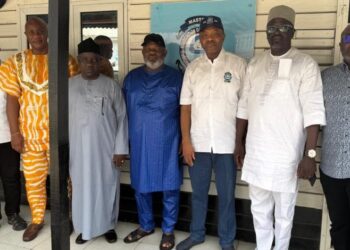The Nigerian Maritime Administration and Safety Agency (NIMASA) on Monday disclosed that it was reviewing existing modalities in order to support the disbursement of the Cabortage Vessel Financing Fund (CVFF) originally meant to support indigenous shipping capacity.
The Director General of NIMASA, Dr. Dayo Mobereola, made the disclosure at a media parley it convened in Lagos.
Giving assurances that the Fund was intact with the Federal Government, Dr. Mobereola said unlike previous shipping development funds that were lost to beneficiaries who failed to pay back the monies, adherence to a new model would ensure that the CVFF would be disbursed to support the course for which it was created.
His words: “If you remember that like 25 years ago when some of the resources were disbursed, they were lost. They were given to the wrong people; there was no benefit to the nation, and they were no benefits to the ship-owners. So, in this case, we are looking at opportunities to ensure that the CVFF, when we start to disburse it, it would be for the benefit of shipping promotion in Nigeria. It would not be a start and stop process. It would continually develop the sector.
“These are the strategies we are working on and having in mind that the strategies or decisions taken 20 years ago have been surpassed. So, there are many other opportunities now, and we would be doing ourselves injustice if we fail to put into consideration what is happening now, not only in Nigeria, but international too.
“CVFF is not about vessels alone. But it would include what exactly these vessels would be carrying. So, we are also working on the issue of ensuring that there would be steady cargoes for the vessels so that they would be making revenues for the sector rather than lying fallow.”
Responding to the issue of the Agency’s Modular Floating Dock, which has not been deployed since it was acquired in 2018, the NIMASA DG said though several proposals had been received, the Agency was still putting its acts together for the facility to immediately begin to operate, support some forms of training for cadets and generate revenue for the nation.
“I understand that a good decision is better than a perfect decision; however, a ‘no decision’ is not good at all. So, we want to put the modular floating dock to use as soon as possible, for it to generate revenue for the country, to help develop our cadets, to help earn revenue and employment for the maritime sector. But, we need to do it right,” Dr. Mobereola said.
Responding to concerns raised about Nigerian cadets at the Centurion University in India, the DG said that the Agency wanted to be sure of the terms of engagement with the University, for the good of the students, and that there were not going to be withdrawn from their programme.
“We have not said that those students were coming back home. What we are doing is that we are reviewing the processes of how the school has been engaged; is it in the benefit of the students, are the students going to be good products when they graduate from these universities?” he resorted.
The DG’s media interaction touched on the challenges that Nigerian seafarers face as a result of the Certificate of Competency (CoC), which is the key endorsement of a seafarer’s capacity to work onboard ships.
He expressed confidence that Nigerian seafarers would soon be open to great career opportunities to work at sea as plans have been set for improved training and certification.
“We are working committedly and engaging with the people who would be training the cadets for sea time. Very soon, these young cadets who are energized and willing to work would be given opportunities. Beyond that, we know the benefits. We know that countries like the Philippines repatriate about $26 billion annually back to their country,” he said.


